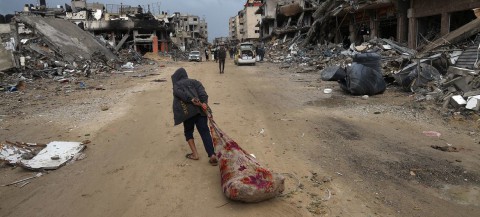Gaza .. Will the blood of journalism remain cheaper than the truth it tried to reveal?
September 15, 202541 ViewsRead Time: 2 minutes

Font Size:
16
In a shocking statement that encapsulates an unprecedented humanitarian and media tragedy, the UN Special Rapporteur on Freedom of Opinion and Expression, Irene Khan, described the war in Gaza as "the deadliest ever for journalists," accusing Israel of deliberately targeting them to cover up what she described as "genocide."
The numbers alone reveal the scale of the disaster: 252 Palestinian journalists have been killed since the outbreak of the war in October 2023, which is more than what global journalism lost in both World Wars, the Vietnam War, and the Yugoslav and Afghan wars combined. In comparison, the number of journalists killed in Ukraine since the start of the Russian invasion has only reached 14, while "dozens" were killed during two decades of war in Afghanistan.
This stark disparity reflects the severity of what is happening in Gaza, where journalists do not appear to be mere incidental victims of fire, but are clearly targeted. Khan stated sharply: "They are being picked off and killed because their work exposes the atrocities, crimes, and genocide on the ground."
With this accusation, the UN rapporteur not only places Israel in the legal dock but also reveals a systematic attempt to obscure the truth and deprive the world of the field narrative. Targeting journalism is a double blow: killing the human and killing the truth.
The implications of these numbers and statements go beyond the humanitarian dimension to become a political and moral condemnation of the international community, which is content with mere denunciation without providing protection for journalists or holding those who attack them accountable. When Gaza becomes "the largest graveyard for journalists in modern history," international silence becomes complicit in the crime.